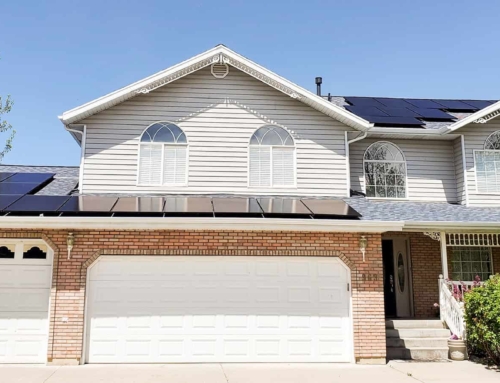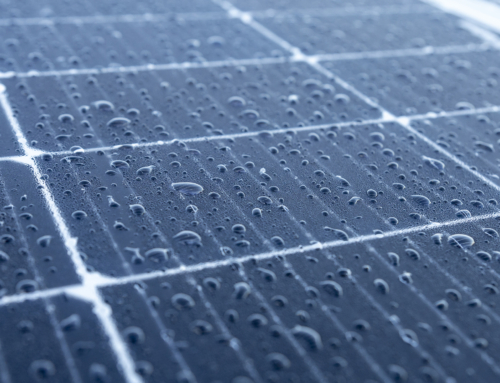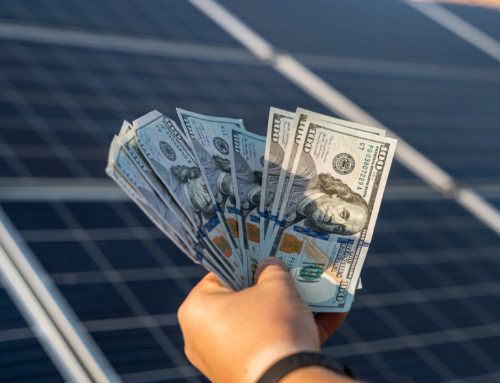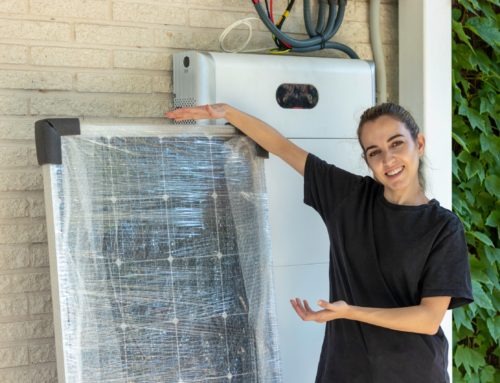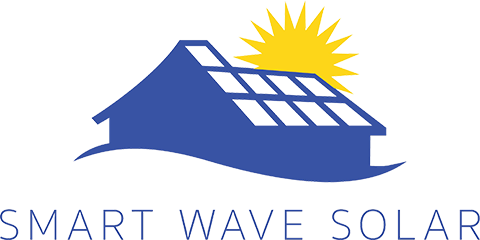There are many different ways to harvest energy from your solar panels. In this article, we’re highlighting one in particular: micro inverters.
Micro inverters are power converters that turn the energy collected from solar panels into energy you can use in your home. They convert the DC (direct current) from your solar panels into usable AC (alternating current).
But are micro inverters the right choice for your solar panels? Let’s dive into the pros and cons of solar panels with micro inverters. But first, we should consider how these inverters stack up to the other options.
Micro Inverters vs. String Inverters
Let’s consider the differences between micro inverters vs. string inverters.
What Are String Inverters?
String inverters are the oldest form of power conversion used in solar systems today. They connect all of your solar panels into a single inverter.
Which Is Better: Micro Inverters or String Inverters?
String inverters and micro inverters do the same thing, but there is one key difference: string inverters connect all solar panels to a single power convertor. In contrast, micro inverters can have an inverter for every panel.
This disparity causes a lot of differences between the two inverters. While it’s worth noting the differences in cost and maintenance (we’ll dive more into this later), there is one scenario where solar panels with micro inverters outshine string inverters: shade and low light.
Because every solar panel is wired in sequence to a single string inverter, the current is reduced to that of your lowest-producing panel. For example, if 40% of one panel is shaded, all your panels will generate power as if they were shaded by 40%.
Micro inverters, on the other hand, allow solar panels to operate independently. One shaded solar panel will not affect the performance of another, so shady winters and indirect sunlight won’t drastically affect your energy independence.
Micro Inverters vs. Optimizers
Another option you may be weighing against micro inverters are optimizers. Here is everything you should consider when comparing the two technologies.
What Is an Optimizer on a Solar Panel?
An optimizer is very similar to a micro inverter—both have a mechanism for each solar panel. However, optimizers take the power received from solar energy and keep it as DC until it is sent to an additional component: the central inverter. There, the energy is finally converted to AC.
Which Is Better: Micro Inverters or Optimizers?
Because micro inverters and optimizers are so similar in functionality, it can be difficult to pinpoint a reason one is superior to the other. Both have similar energy efficiency and offer panel independence (unlike the string inverter).
Micro inverters do tend to be a little more expensive than optimizers, which may sway some readers. However, warranties for micro inverters are often better than optimizer systems. This is because optimizers usually have a shorter warranty for the central inverter, meaning you may spend more money on maintenance needs.
4 Advantages of Micro Inverters
Here is every advantage worth considering about micro inverters:
- Independent nature of solar panels: As we just mentioned, lower light on one solar panel will not affect how much sunlight your other panels can consume. That means shady patches and indirect sunlight shouldn’t be a problem for you.
- Easy system expansion: Since you can get a micro inverter for each solar panel, you can easily upgrade your system whenever you need to without overcomplicating your inverter setup.
- Longer lifespan: Micro inverters have an average lifespan of 20-25 years, meaning you can use the same inverter for almost the entire duration of your solar panels (25-30 years). Compare this to string inverters, which usually only last 10-15 years.
- More accurate monitoring: Another benefit of independent inverters is how you can more easily check the performance output of each of your solar panels. Solar companies can measure each inverter’s output to determine which ones are operating under desired capacity.
3 Disadvantages of Micro Inverters
Of course, there are some downsides to micro inverters when compared to other types of inverters. Here are some you should know about:
- Hardware requirements: One inverter per solar panel means you’ll have a lot more hardware on your roof. You’ll need to ensure your roof can handle all the extra weight.
- Higher upfront costs: More hardware means more cash requirements upfront. It also means more equipment you’ll have to install (or pay to get installed).
- More complicated maintenance: If your micro inverter fails, it can be much more work to install a new one. Most micro inverters are stored underneath their respective solar panels, so you may need to remove the solar panel.
Are Micro Inverters More Efficient?
It’s hard to definitively say whether micro inverters are more efficient than other inverters; there’s no proof they process electricity using less energy. However, because micro inverters allow solar panels to produce electricity independently from one another, they could be considered more efficient in that regard.
Are Micro Inverters Worth It?
Solar energy is almost always worth the investment, but you may have some reservations about micro inverters (especially considering the high startup costs).
However, most people find that micro inverters are worth the investment—the ability to generate large amounts of electricity regardless of partial shade or cloud coverage ensures you adequately supplement your energy supply.
Which Micro Inverter Is the Most Popular?
Enphase micro inverters are some of the best-reviewed inverters on the market today. Enphase inverters have some of the lowest failure rates, making them an incredibly reliable brand to choose for your solar system. Most Enphase products also come with a 25-year warranty, so your system can still be taken care of in the rare event of a failure.
Find the Solar Plan That Works Best for You
Still not sure micro inverter solar panels are best for your home? Don’t worry about it; we’re here to help. Smart Wave Solar has years of experience helping clients create custom-designed solar systems that produce optimal energy to adequately reduce their energy bills.
Contact Smart Wave Solar today, and we’ll help you determine the best option according to your home and geographic location.

